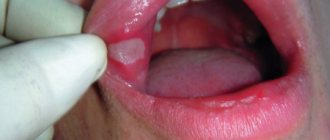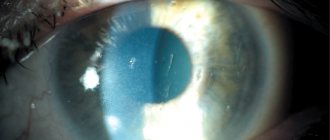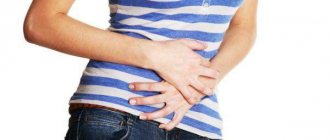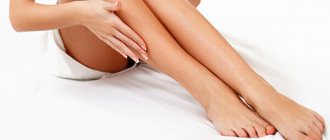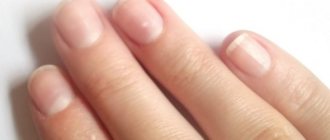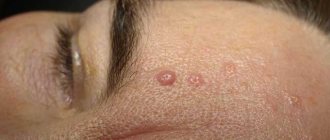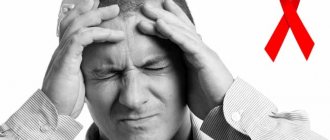Hiccups are a phenomenon familiar to everyone. In themselves, isolated attacks of hiccups are harmless to the human body. However, if the hiccups do not go away on their own within 24 hours or are accompanied by symptoms that cause serious harm to a person’s life (suffocation, headache, shortness of breath), this may indicate serious pathologies and disturbances in the functioning of the internal systems of the body. A mistake that many people make is ignoring the symptoms that accompany hiccups. Knowing the peculiarities of the occurrence of hiccups will help alleviate the condition as quickly as possible and completely get rid of it.
Frequent stress can be accompanied by hiccups.
How do hiccups appear?
Usually, air leaves the respiratory tract smoothly, but sometimes, under the influence of some factors, it begins to be pushed out in jerks.
At the same time, the chest contracts convulsively. This process is called hiccups and occurs due to irritation of the diaphragm. The diaphragm is a muscle that is controlled by the autonomic nervous system. It delimits the abdominal cavity and the chest.
The vagus nerve, which is a pair of mixed cranial nerves, runs inside the diaphragm. This nerve runs from the skull down to the center of the abdominal cavity through the esophagus, serving to connect the internal organs and the central nervous system. If any irritants enter the esophagus, the vagus nerve is injured and begins to contract.
Hiccups occur in the form of several convulsive breaths with pauses between them. In the middle of inhalation, the glottis closes, the person makes a loud involuntary sound from the throat, and the body shudders. It is believed that this is the body’s protection from some external irritants.
What does prolonged hiccups mean?
Are you worried about constant hiccups? The causes of this disease can be very different. In most cases, the symptom indicates more serious diseases of the internal organs. Here are just the main disorders that lead to prolonged hiccups:
- dysfunction of the central nervous system;
- various intestinal infections (helminthiasis, giardiasis);
- inflammation of the stomach and gall bladder;
- serious liver damage;
- diabetes.
Of course, the final cause of the pathology can be identified only after examining the patient. As a rule, people with such a symptom turn to a therapist or neurologist. However, if the disease turns out to be a consequence of the development of a more serious illness, the patient may be redirected to another specialist.
Causes of the unpleasant symptom
In an adult, hiccups occur due to factors in which he himself is involved and due to various diseases. Causes in adults not related to disease are as follows:
- Hasty eating. When eating food quickly, large, unchewed pieces often enter the stomach, which injure and irritate the vagus nerve.
- Binge eating. Large amounts of food stretch the stomach, and it touches the diaphragm, irritating it.
- Eating in an awkward position. It is required to eat only while sitting and at the table, otherwise the nerve is compressed and the diaphragm begins to contract convulsively.
- Dry food. Too hot or cold food and drink, as well as dry food, lead to the occurrence of the attack being studied.
- Fright. If a person suddenly gets scared, he takes a sharp breath, causing the diaphragm to become irritated.
- Drinking carbonated drinks. If you drink soda in large quantities, the stomach becomes full and, as a rule, pressure on the vagus nerve occurs.
- Microtrauma of the vagus nerve. If the nerve is injured, the diaphragm begins to contract to get rid of the injury, which causes an attack.
- Alcohol abuse. Hiccups in adults occur due to excessive drinking. Toxins cause the liver to become enlarged and the muscles to relax. That's why a drunk person often hiccups.
- Hiccups when smoking. What can cause hiccups in a smoker? There are many reasons for its appearance: weakening of the sphincter, leading to the release of acid into the esophagus and irritation of the diaphragm, poisoning by combustion products, absorption of smoke along with air.
You may also be interested in: Why do hiccups start immediately after eating?
Hiccups occur due to hypothermia. This phenomenon especially concerns young children. The symptom in question may appear if a person is stressed.
Normal hiccups go away on their own and do not require medical intervention. Persistent hiccups, when they last more than two days, require a visit to the doctor, examination and treatment. In adults, the causes of prolonged hiccups may be associated with the presence of a serious illness. Why a person hiccups for too long, the reasons lie in the following:
- Hypermotor dyskinesia. Gastric contents constantly irritate the esophagus, provoking attacks. In addition, there are other symptoms: heartburn, coughing and neck muscle tension.
- Hernia in the diaphragm. Hiccups as a result of this diagnosis may occur immediately after eating or changing body position. Sometimes it is accompanied by mild pain behind the sternum and in the abdomen. As a result of the development of a hernia, internal organs are displaced, causing shortness of breath and rapid heart rhythms.
- Pulmonary dysfunction. In addition to hiccups, people begin to experience hair loss, drowsiness and constant yawning.
- Cervicothoracic radiculitis. The roots of the spinal cord are affected, the tone of the diaphragm increases and the liver moves downwards. Prolonged hiccups are accompanied by discomfort in the throat; a lump is felt that cannot be swallowed.
- Disturbances in the functioning of the central nervous system. This may be due to the development of a tumor, injury and infection. Why does chronic hiccups occur - it is caused by stroke, multiple sclerosis, meningitis, encephalitis.
- Intracranial pressure. In this case, hiccups are diagnosed as severe and painful. Lasts quite a long time.
- Gastrointestinal pathology. Problems with the bile excretory system, gastritis, pancreatitis, ulcers and other diseases.
- Oncology. Cancerous tumors of the lungs, esophagus, stomach and pancreas, liver.
It usually appears for the following reasons:
- violation of nutrition rules: overeating, hasty absorption of food, dry food;
- hunger, thirst;
- consumption of alcoholic and carbonated drinks;
- uncomfortable body position for a long time;
- stressful situations, fear, excitement;
- cooling the body, especially in young children.
We recommend reading: Why hiccups start immediately after eating
The problem caused by these reasons goes away in 5-25 minutes, very rarely lasts several days.
Hiccups are an unpleasant phenomenon, as they interfere with a person’s ability to speak, work, or eat food. Continuous attacks cause:
- neuroses;
- depressive disorders;
- sleep disorders;
- dehydration of the body (dehydration);
- intensive weight loss;
- heartbeat disorders;
- inability to work.
Reference! Men are more likely than women to suffer from a debilitating condition, and the number of protracted attacks increases, and the causes contributing to the development of the disease are difficult to identify.
Attacks of a physiological nature are considered the most harmless and disappear on their own after 10-15 minutes. The pathology is caused by the accumulation of gases and air in the stomach.
Factors contributing to the occurrence of physiological attacks:
- hypothermia of the body;
- overeating, haste, taking the wrong posture while eating;
- excessive consumption of pickles, smoked foods, spicy, sweet foods;
- overeating baked goods;
- feeling of thirst;
- exciting feeling;
- prolonged laughter;
- alcohol abuse (in adults);
- fear, fright.
Interesting! Physiological hiccups do not require treatment - to eliminate the cause of the pathology, it is enough to warm up, exclude unhealthy foods and carbonated drinks from the diet, try not to abuse alcohol, or use a few simple techniques available to everyone.
Pathological attacks of hiccups are divided into 3 categories:
- Central - diseases associated with damage to the brain and spinal cord (epileptic seizures, meningitis, stroke) lead to pathology;
- Peripheral - caused by paralysis of the diaphragm (Hodgkin's disease, diseases of the respiratory organs, sarcoidosis, neoplasms of the esophagus, lungs);
- Toxic - occurs due to intoxication of the body (kidney dysfunction, alcohol abuse, drug use, diabetes).
Fact! Pathological hiccups most often occur due to nervousness.
Frequent hiccups can occur in both healthy and sick people, both adults and children. Usually it passes quickly, there is no harm from it, and it does not bring danger. But in some cases it is necessary to pay attention to this and identify the cause, because attacks of hiccups in adults may indicate the presence of diseases.
The causes of frequent hiccups are varied, and the most common ones are the following:
- Food and overeating. This is the most common cause of hiccups. Eating large amounts of food stretches the stomach. It puts pressure on the intercostal muscles, causing contractile movements, which is why the unpleasant symptom begins to appear. If a person suffers from hiccups immediately after eating, then it is worth reducing the amount of food.
- Sudden fear. It causes an involuntary sharp breath that compresses the muscles of the diaphragm. This happens if a person lies in an uncomfortable position or is asleep.
- Frequent hiccups develop after heavy consumption of alcoholic beverages. The reason for this manifestation of the body is that alcohol causes intoxication and, in order to cope with the poisoning, it responds with muscle contraction.
- Often, a person often hiccups due to a malfunction of the nervous system.
- Quite often, especially in young children, hiccups occur as a result of hypothermia. Therefore, it is important to maintain temperature balance and avoid sudden changes.
These causes do not have serious consequences and are easy to eliminate. But sometimes especially frequent hiccups indicate the presence of a disease. To avoid problems and prevent the development of pathologies, the dangerous causes of the manifestation of the presented symptom are listed:
- Stroke.
- Diseases of the respiratory system and lungs.
- Gastrointestinal diseases.
- Metabolic disorders.
- Frequent stress.
- Hernia.
- CNS lesions.
- Intracranial pressure.
- Meningitis.
- Multiple sclerosis.
Persistent hiccups may appear due to the formation of a benign or malignant formation. Therefore, such a harmless problem should not be hushed up. If attacks occur frequently, then you need to visit a doctor to determine the cause and treatment.
Symptoms
The general clinical picture, in this case, is quite clear and manifests itself in the form of the following symptoms:
- a sharp, for no apparent reason, contraction of the diaphragm with a simultaneous short inhalation and protrusion of the abdomen;
- closure of the epiglottis and glottis leads to the fact that a person makes a specific sound;
- if it is physiological hiccups after eating, then it goes away within a few minutes. The pathological symptom lasts longer.
If this symptom is caused by a gastroenterological disease, then specific signs of the corresponding clinical picture are added.
How to quickly stop hiccups in adults at home
Only physiological hiccups can be dealt with at home if the pathology is short-term in nature. There is no universal way to get rid of the disease, because everything depends on the individual characteristics of the person. Some people get rid of the unpleasant condition by holding their breath for a few seconds, others need to drink fluids.
Here are examples of common ways to deal with obsessive hiccups:
- take a deep breath, then exhale slowly. Avoid dizziness when holding your breath. Repeat attempts until the hiccups disappear completely;
- To change the inhalation-exhalation mode, you should scare the hiccupper. The person will inhale a breath of air, which will distract him from the process of contracting the diaphragm, his attention will switch and the hiccupper will forget for a moment about the uncomfortable state. Do not try to carry out the experiment with children, because children have a vulnerable psyche, and fear can leave an imprint for life;
- smell your favorite perfume - this method promotes switching attention and concentrating on the smell. Take a few slow breaths in and out.
A good remedy for hiccups is to drink a couple of sips of liquid. Water helps to cope with spasmodic contractions of the diaphragm and helps calm a person. A few sips of water are especially effective for hiccups after overeating.
Liquid helps stop the process at any age, so even a baby can be offered a sip of water if he hiccups. To ensure that hiccups go away, the water is sweetened with sugar or honey - sweets help activate the salivary gland.
Note! Honey is a strong allergen, so you should not experiment with children and add beekeeping products to the water, as allergic reactions may develop.
Hiccups can be overcome by doing physical exercises. Take a deep breath and squat down. Then exhale and return to the starting position. Repeat the experiment again. By concentrating on doing the exercises, a person begins to breathe correctly, which helps calm the diaphragmatic muscle.
Other effective ways to get rid of hiccups:
- press on the root of the tongue as if you want to induce vomiting - the method is unpleasant, but after it the hiccups stop;
- bet money - you will be focused on not having hiccups, because if you hiccup, you lose the chance to win. If the process stops, the money is yours;
- wet the paper strip and stick it on your forehead - the hiccups will go away.
Attention! If none of the methods help, do not despair, the hiccups will end spontaneously after 15-20 minutes. If the process drags on, you should contact a specialist to diagnose the condition.
When intoxicated, the muscles of the diaphragm contract, causing spasms and hiccups. To get rid of the unpleasant condition, you should clear your stomach of alcohol-containing drinks: induce vomiting, take an enterosorbent. If an attack persists, follow the instructions below:
- put ice on your tongue, keep it cold until it melts;
- eat a little salt or sugar - a sharp change in taste helps stop hiccups;
- try to get rid of the process by trying citrus fruits - lemon or orange. Acid promotes increased salivation, which affects the cessation of hiccups;
- breathing and physical exercises are a good help for those who hiccup when they are heavily intoxicated. If a person is very drunk, it is not physical exercise that is contraindicated;
- Chew the cracker slowly.
Why does hiccup occur?
The causes of hiccups may be related to several factors affecting the human body. Prolonged hiccups often occur with general hypothermia of the body. This often happens to young children after prolonged exposure to cold water or outdoors on cold days. The causes of hiccups in adults are often associated with alcohol intake - prolonged hiccups are observed in people in a state of severe alcohol intoxication.
The causes of hiccups after eating are associated with severe distension of the stomach due to overfilling with food. Doctors are convinced that the occurrence of involuntary muscle contractions initially occurs in the esophagus. If swallowing is impaired, food can get stuck in the esophagus, and cramps develop at the junction of the esophagus and the stomach. In this case, what is needed is not treatment, but a transition to a more balanced and fractional diet .
Constant hiccups occur due to irritation of the phrenic nerve . The causes of hiccups in this case are uncontrollable spasms. Sometimes the diseases that a person suffers from indicate what hiccups are and why they occur. For example, hiccups are a sign of irritation of the diaphragm due to inflammation in the abdominal cavity. In this case, hiccups can be painful and last for a very long time. Hiccups can be accompanied by a number of ailments of the brain and spinal cord, infectious diseases, and myocardial infarction . Sometimes this symptom appears in a person in a state of mental excitement. Hiccups may also appear in patients during postoperative rehabilitation.
Constant or periodic manifestations of hiccups are possible with renal failure . If an abscess or tumor develops in a person's chest, esophagus or diaphragm, hiccups may also occur periodically.
The causes of hiccups may be psychological in nature. However, if a person is bothered by constant hiccups after eating, then this phenomenon is associated only with his physiology. Belching and hiccups after eating in adults, as well as in children, appears after overeating. But if children do not always understand how much food they need to eat in order to be satisfied, then an adult should clearly understand why hiccups begin after eating and control the size of their portion.
Women periodically experience hiccups during pregnancy . During pregnancy, the expectant mother often experiences disturbances in the digestive process, which leads to the occurrence of this symptom. In addition, expecting a baby during pregnancy is invariably associated with psychological tension, stress and anxiety, which can lead to the appearance of hiccups both in the early stages of pregnancy and in the last weeks before childbirth. In most cases, this phenomenon is not dangerous either for the woman or for the unborn baby. But if hiccups cause significant discomfort and develop very often, then it is better for the expectant mother to consult a doctor. He will determine whether hiccups should be considered a sign of serious problems.
Those people who have been constantly smoking for many years may be bothered by hiccups when smoking . As a rule, heavy smokers develop hiccups while smoking or after smoking.
Parents are often concerned about periodic hiccups in their infants. Even during pregnancy, the expectant mother sometimes notices periodic rhythmic tremors, indicating fetal hiccups. In a newborn baby, hiccups often appear due to spasms during contractions of the diaphragm. In newborns, prolonged and episodic hiccups are determined. If frequent hiccups occur sporadically in an infant, they should not cause concern. Prolonged hiccups do not go away for two days or more. This is a serious symptom that requires immediate medical attention.
Answering the question why frequent hiccups are observed in infants, it should be noted that the main reason for this is overeating . Very frequent hiccups and belching after feeding occur due to excessive swallowing of air by the baby. If parents are trying to understand what hiccups mean, then they should pay attention to whether the baby is hypothermic.
Hiccups in newborns after regurgitation are also common. The causes of hiccups in newborns in this case are associated with very rapid absorption of food and swallowing air during feeding. If parents understand why newborns have hiccups after eating, then they take steps to prevent spitting up and hiccups. More experienced parents know what to do when newborns have very frequent hiccups after feeding. For example, to prevent the contents of the stomach from flowing back into the esophagus, it is recommended to keep the child in an upright position for some time after eating. However, when thinking about how to stop hiccups, parents should understand that their occasional occurrence is absolutely normal and no treatment is required. If hiccups do not cause any particular inconvenience to the baby, then there is no need to look for an answer to the question of how to get rid of this symptom in newborns. As the baby grows up, everything will go away on its own.
However, sometimes only a doctor can answer why newborns have hiccups. Indeed, in some cases, hiccups in babies are provoked not by feeding, but by stress, hypothermia due to the use of inappropriate clothing. If necessary, the doctor will prescribe additional examinations and tell you how to soothe and relieve hiccups, and which remedy will be most effective in each individual case.
Parents of older children should pay attention to the manifestations of frequent hiccups. This symptom sometimes indicates the development of pneumonia , diseases of the intestines , liver , and stomach . Hiccups in children can occur due to infection with worms, spinal cord or brain injuries. Therefore, with frequent and prolonged hiccups, you need to worry not about how to stop hiccups, or how to eliminate its frequent manifestations, but be sure to consult with your pediatrician.
How to get rid
Before deciding what to do about hiccups in babies, you should definitely determine why a small child has frequent hiccups. Sometimes simple observation of the child will allow you to understand what is going on. For example, you can understand how to rid a baby of hiccups by determining whether the baby is cold.
If hiccups appear in infants after eating, then you should simply hold the baby in an upright position for a while, while lightly stroking the back. In this way, the release of excess air that enters the stomach during eating is stimulated, and after feeding, belching and hiccups do not occur in infants.
If hiccups occur too frequently, parents should determine whether they are overfeeding their baby. Sometimes the problem with bottle feeding is that the hole in the nipple is too large, through which the baby swallows air. Therefore, in some cases it is enough to simply change the bottle.
How to stop hiccups in a baby if this symptom was triggered by stress is also easy to understand. It is enough to ensure a calm environment in the house, prevent the appearance of too loud sounds, and prevent the baby from communicating with too many people. A pediatrician will tell you how to eliminate hiccups in infants, the causes of which cannot be determined independently.
In older children and adults, you can try to stop hiccups using well-known methods. Treatment of hiccups with drugs is practiced only if it is caused by serious diseases. For normal, recurring hiccups, drug treatment is not used.
Indomitable hiccups in most cases can be effectively removed with folk remedies, and treatment of hiccups with medications should not be attempted without consulting a doctor. To get rid of hiccups, it is necessary to take measures to stop spasms of the esophagus and diaphragm. To do this, you should either distract the attention of the person suffering from hiccups, or use certain breathing techniques.
For example, a good remedy for hiccups is to swallow something very sour or bitter. If such an “irritant” enters the digestive system, then the hiccups stop. A slice of lemon will do.
You can try to get rid of hiccups by reflex. To do this, you need to place your finger on the wall of the pharynx, but you don’t need to press it too hard so as not to cause vomiting. You can also open your mouth wide, pull out your tongue and hold it for a few seconds.
When answering the question of what to do with constant hiccups, one cannot help but recall one of the most well-known methods - suppressing hiccups with water. To do this, you just need to drink a large glass of warm water in small sips. In this case, the torso should be tilted slightly forward. Sometimes all you need to do to stop hiccups is eat a teaspoon of sugar.
Another well-known method: you need to sharply scare the hiccupping person. The spasm will help interrupt a sharp loud sound or shout. You can try holding your breath for a while, doing this three times in a row. And sometimes frequent breathing will help relieve hiccups. You need to breathe like this for several minutes.
It is most difficult for a drunk person to get rid of hiccups. The main ways to get rid of this symptom for a person under the influence of alcohol do not always help. Therefore, you often just have to wait a while until long-term hiccups disappear on their own.
If a person starts hiccups immediately after eating, the following method is practiced: take a plastic bag and cover the mouth and nose with it. Thus, a person can only breathe the air that is in the bag. You need to breathe until the lack of air becomes noticeable. Severe and long-lasting hiccups can be eliminated with one procedure with the package.
Having sedatives at hand, it is easy to find the answer to the question of how to get rid of hiccups, which arose due to severe nervous tension. You can drink 20 drops of Corvalol or Valocordin.
Some traditional medicine methods will also tell you how to get rid of hiccups. For frequently recurring hiccups, it is recommended to drink an infusion of gray hiccup. To prepare the infusion, you need to pour one tablespoon of the flowers of this plant with one glass of boiling water. If hiccups recur very often, you should drink the infusion every two hours.
But sometimes you have to get rid of hiccups with the help of a doctor. You should definitely consult a doctor if the hiccups do not go away within several hours, or if the hiccups occur several times a day every day. In this case, the doctor may order an x-ray of the esophagus. Depending on the detected causes of hiccups, treatment is prescribed.
People use many ways to help if hiccups do not go away:
- Holding your breath. It is enough to hold your breath for a few moments while inhaling. Repeat several times.
- If you suffer from hiccups all day, you should drink a glass of water in small sips. Or drink water from a glass, leaning forward, but not tilting the glass towards you.
- Induce vomiting.
- Sneezing. Black pepper can be used to induce sneezing.
- Changing your posture can help if your body has been in an uncomfortable position for a long time.
- A slice of lemon or sugar. An unusual taste in your mouth will help you cope with the situation.
Mustard and vinegar are often used. This is a very unpleasant, but quite effective mixture, if you have hiccups all day long, no other means help.
Massaging certain areas can also be effective if a person hiccups all day:
- Massage the eyeballs with soft circular movements.
- Perform a circular massage of the abdomen in the intestinal area.
- Press on the ears for 1 minute, rub the ears with your hands.
Among some Native American peoples, if a child suffers from hiccups all day, they tie a red thread or ribbon on his head at the level of the bridge of his nose. This method usually helps to cope with the situation. Maybe the fact is that the child is distracted, trying to squint his eyes at the red tape, the problem disappears.
Sometimes heart medications, for example, Valocordin, Validol, can help. Ice is considered a good remedy. A piece of ice is placed on the tongue or diaphragm area. You can add ice to the water.
Complications
If hiccups occur suddenly and go away just as quickly and on their own, then they do not cause complications. If it is prolonged, the following complications may develop:
- Decreased performance, severe fatigue.
- Lack of sleep.
- Vomiting and pain in the abdominal area.
- Development of complexes, awkwardness and reluctance to be in crowded places.
- Nervousness, irritation, stress.
- For postoperative patients, there is a risk of sutures coming apart.
Severe cases of hiccups can lead to weight loss, arrhythmia, psychosomatic disorders, and even premature birth in women at any stage of pregnancy.
Hiccups last all day: diagnosis
If hiccups do not go away for a long time, several days or weeks, you should immediately make an appointment with a doctor. Because this may indicate serious problems in the body.
Hiccups all day long with nausea, abdominal pain, and vomiting are especially dangerous: they may be a sign of central nervous system disease.
It is necessary to make an appointment with a neurologist, gastroenterologist, or endocrinologist. The following diagnostic procedures are required to find out why a person hiccups:
- Take blood tests, including biochemical tests, for worms and sugar. A blood test will detect kidney disease and infections.
- Perform endoscopy of the windpipe and esophagus.
- Make an electrocardiogram of the heart.
- X-ray of the diaphragm, since prolonged hiccups may indicate problems with the vagus nerve.
- Computer or magnetic resonance imaging.
- Chest X-ray.
You may also be interested in: How to get tested correctly. Gastroscopy
What it is
Before answering the question of what hiccups are and why they appear, you should turn to your school anatomy textbook - especially pay attention to the human structure. Every person has a diaphragm between the chest and abdominal cavity, which contracts in time with breathing. The diaphragm is a muscle tissue with a few nerve endings. Sometimes, under the influence of certain factors, they become irritated and involuntary sharp contractions of the diaphragm begin. This happens regardless of the frequency of inhalation and exhalation. A sharp release of air into the lungs creates the well-known sound of hiccups.
Hiccups come in two forms:
- The physiological form appears in healthy people and does not last long - 5-15 minutes. It does not cause serious inconvenience and disappears on its own.
- Pathological - hiccups can be short-term or long-lasting, and can last from several hours to several days. The reason for this condition is the presence of certain diseases.
If hiccups appear due to pathological changes in the body, the manifestation cannot be ignored. This symptom may indicate the development of a serious disease with serious consequences.
Diseases that cause hiccups
Prolonged, incessant hiccups may indicate:
- Diseases of the central and peripheral nervous system: meningitis, encephalitis, spinal cord disorders, radiculitis, compression of nerve roots, intervertebral nerve hernia, traumatic brain injury.
- Respiratory system disorders: lung cancer, which interferes with the normal functioning of all other organs, laryngobronchitis.
- Pathologies of the cardiovascular system: there may be signs of a pre-stroke condition, arteriovenous malformations, vasoconstriction, and heart attack.
- Metabolic disorders: for example, diabetes.
- About the presence of gastrointestinal diseases: problems of the esophagus, pancreas, gallbladder, liver cancer, hepatic or uremic coma, tumors of the esophagus, stomach, esophageal diverticulum, reflux esophagitis, ulcers, gastritis, intestinal obstruction.
- Toxic damage to the body: side effects of certain medications. For example, hiccups from painkillers after surgery are common.
- Pinched vagus nerve.
- Multiple sclerosis.
- Intoxication: alcohol, chemicals.
- Glaucoma
- Tumor diseases, lymphogranulomatosis.
If you suffer from hiccups, you need to be checked for helminthic infestations and giardiasis. Kidney failure and abscesses can also cause contraction of the diaphragm. The cause of prolonged hiccups is sometimes an increase in intracranial pressure or a volumetric neoplasm of the posterior cranial fossa.
A persistent attack of hiccups is not considered a characteristic sign of the disease, however, prolonged hiccups help the doctor diagnose the pathology and choose therapeutic tactics. Therefore, if you have persistent hiccups, consult a doctor immediately.
CNS disorders:
- infections leading to inflammation of the brain: measles, chicken pox, rubella, ARVI, swamp fever, toxoplasmosis;
- infectious lesions, the complication of which is meningitis: meningococcal infection, toxoplasmosis, syphilis, mumps;
- damage to the skull and brain;
- depression;
- benign and malignant neoplasms of the brain and spinal cord, damage to the myelin sheath of the brain.
Hiccups due to toxic damage to the body:
- intoxication due to alcoholism, drug addiction, taking potent medications;
- diabetes;
- kidney dysfunction;
- infectious poisoning;
- diabetes;
- side effect of anesthesia.
Autoimmune diseases:
- systemic lupus erythematosus;
- neuromyelitis optica;
- multiple sclerosis;
- Besnier's disease - the formation of granulomas on internal organs;
- autoimmune vasculitis.
Other diseases:
- bronchogenic carcinoma;
- inflammation of the pleural layers;
- inflammatory damage to the peripheral nerve;
- reflux esophagitis;
- food allergy or intolerance to a certain food product;
- diaphragmatic hernia;
- gastrointestinal dysfunction;
- inflammation of the gallbladder, formation of stones in the bile ducts;
- neoplasms on the organs of the digestive system.
Treatment process
It is impossible to describe the treatment process aimed at preventing the directly discussed problem. It is possible to completely cure hiccups, if they are a symptom of any disease, only by overcoming the disease that causes such manifestations.
Of course, the treatment process will be different in each case, because everything depends on what specific ailment we are talking about.
However, the undeniable fact remains that if such attacks are constant and there are no apparent reasons for their occurrence, you should consult a doctor for diagnosis. First of all, you need to examine the gastrointestinal tract, then the heart, liver, kidneys and nervous system. As the examination progresses, the problem will be revealed and every effort will need to be made to eliminate it.
The only exception to the treatment of hiccups is the use of certain medications. First of all, we are talking about antispasmodics, drugs that relieve muscle spasms (in this case, the diaphragm).
Examination and drug treatment
If the hiccups do not go away for several days, do you need to go to the clinic and undergo an examination to find out why the person hiccups? It is necessary to undergo the following types of diagnostics:
- Blood tests: general and biochemical.
- Study of heart functions: ultrasound or ECG.
- X-ray of the chest.
If the examination reveals any pathology, then drug treatment is prescribed. It is recommended to take the following medications:
- Relaxing muscles of the diaphragm - Aminazine, Haloperidol.
- Cleansers that reduce the content of hydrochloric acid in the stomach - Omeprazole, Ranitidine.
- Eliminating shortness of breath and feelings of suffocation - Gabapentin.
- Painkillers – Ketamine.
- Sedatives that help cope with stress and nervous strain that occur after prolonged hiccups - Sedafiton.
Sometimes doctors recommend using non-medicinal methods if frequent hiccups are constantly bothering you. Among the most common and effective are:
- Acupuncture.
- Hypnosis session.
- Stimulation of the phrenic nerve.
- Phrenic nerve block.
You should not prescribe such methods of struggle to yourself. Before using these methods, you should consult your doctor, otherwise you may simply worsen your symptoms. Hiccups do not lead to serious complications on the body or serious consequences, but its frequent and prolonged attacks lead to fatigue, loss of strength, stress, insomnia and headaches. The aesthetic side of the problem is also important - frequent hiccups cause embarrassment to a person and can cause serious moral damage.
Therapy consists of identifying and eliminating the primary diseases that caused the problem.
We advise you to read: How to quickly stop hiccups
For neurological causes of hiccups in adults, antidepressants, antipsychotics, and anticonvulsants are prescribed. They suppress the bioelectrical activity of the brain. The most effective medications: Cerucal, Motilium, Scopolamine, Pipolfen, Finlepsin, Diphenin, Corvalol.
Other medicines:
- Haloperidol, Baclofen, Aminazine are used to relax the muscles of the diaphragm;
- for stomach problems - Omeprazole, Metoclopramide;
- for pain relief – Ketamine, analgesics;
- sedatives.
If prolonged hiccups do not stop with the help of these remedies, surgical intervention is used - blockade of the nerves of the diaphragm with novocaine according to the Vishnevsky method. This procedure improves the sympathetic functions of the nervous system. In some cases, acupuncture and hypnotherapy help.
By the way, contraction of the diaphragm is an unconditioned reflex; it cannot be artificially caused.
When medical attention is needed
If severe and debilitating hiccups occur, a visit to the doctor is necessary. You should also visit a medical facility if you have the following symptoms:
- Hiccups are accompanied by pain in the diaphragm.
- The hiccupper's general condition worsens.
- There is heartburn, belching, poor appetite.
- There is pain in the chest or abdominal cavity.
- There is constant insomnia.
- There is an infectious disease.
Diagnostics involves undergoing examination by a therapist, psychologist, cardiologist, oncologist, gastroenterologist.
Why do people hiccup
What is hiccups? Let's start with physiology. The human body contains a muscle that helps us breathe. It is located next to the stomach and is called the “diaphragm”. When people breathe, the diaphragm contracts rhythmically. But sometimes the normal functioning of the muscle is disrupted. It loses its stable rhythm and gets out of control, forcing the person to inhale more air.
What causes a person to hiccup. When uncontrolled air masses fill the lungs in large volumes, the brain feverishly tries to bring the body in order. A stern signal from the larynx is given: “Stop the disgrace! Stop!” In response, the vocal cords immediately close.
At this time, the diaphragm still forces the body to inhale air, and the larynx, obeying the brain, does everything possible to stop this process. The movements of the diaphragm become convulsive, the air, colliding with the closed vocal cords, produces a strange, funny sound “Ik”. A person begins to hiccup.
Interesting fact.
There is a known case where a person hiccupped for 68 years. American Charles Osborne began to get hiccups while he was cutting a pig for a holiday. At first, the person hiccuped 40-50 times per minute, then the hiccups decreased, dropping to 20-30 times every minute, and did not stop. Charles got used to her and led a normal life. The hiccups left the man in 1990, and a year later Osborne died from an exacerbation of a stomach ulcer.
Different ways to drink water
Hiccups stop under the influence of several conditions:
- irritation goes away from the vagus nerve;
- the diaphragm relaxes;
- the nervous system is distracted from the reflex, that is, switches to something else;
- the work of the respiratory center is activated.
That is, all methods of eliminating hiccups are based on achieving the above conditions. It is believed that it is easier to cope with hiccups at the very beginning of the attack. Therefore, when a problem arises, you must act immediately.
Physiological hiccups can be dealt with quite easily. If you don’t want to wait for breathing to recover on its own, then you can use any of the methods below.
It is possible to completely get rid of pathological types of hiccups only after finding out the main cause of the breathing disorder and appropriate treatment. Of course, all methods for eliminating physiological hiccups can be used for persistent hiccups, but they are not always effective and, as a rule, act temporarily.
How to get rid of hiccups quickly for those who like to play sports? The answer is simple - do one or more exercises.
- Pull up on the bar or do push-ups.
- Pump up your abs.
- Take a “birch tree” stance.
- Stand in a knee-elbow position for a few minutes.
Physical exercises help tighten the muscles of the abdominal wall, relax the diaphragm and at the same time calm and activate the respiratory centers. All this leads to the fact that the hiccups go away unnoticed.
However, intense physical activity is contraindicated during pregnancy, in patients with severe heart disease and gallstone disease, and it is also prohibited after surgery.
Water from hiccups
The easiest way to get rid of hiccups is to drink water, but you don't need to drink it in the usual way.
- Drink cool water while holding your breath in small sips; hiccups usually stop after 10-12 sips.
- Bend your torso forward as much as possible and drink water from a mug. It is easier to do this manipulation if another person holds the glass.
- Throw a foreign object into a glass of water and, while drinking the liquid, make sure that it does not get into your mouth.
Drinking water in an unusual way leads to relaxation of the diaphragm and nervous system, distracts from the problem and thus helps restore normal breathing.
Certain methods of influencing the tongue can also help stop sudden hiccups.
- The base of the tongue should be pressed with your fingers, as is done when it is necessary to induce vomiting. At the same time, the esophagus begins to contract, and the spasm of the diaphragm goes away;
- stick your tongue out of your mouth as far as possible; it is advisable to also pull it forward, grasping it with your fingers.
Eating food
Stimulating the taste buds very often helps overcome hiccups.
- You can suck a mint candy, a spoonful of salt or sugar in your mouth.
- Spread the root of the tongue with fresh mustard.
- Eat a spoonful of honey.
- Try any product that is unusual for you - hot spices or herbs, sour dishes.
If you are ready to stop the hiccups with the help of mustard, then be prepared for the fact that the consequence of using this method will be a prolonged burning sensation in the mouth.
When dealing with hiccups, methods that switch a person’s attention and distract him from the problem work well.
- Tickling. By trying to hold back laughter during tickling, a hiccuping person also gets rid of the cause of hiccups - clonic spasms of the diaphragm.
- Reading tongue twisters or singing. Remembering the words of sayings or songs during hiccups, a person is distracted from the disturbing state.
- Press with your fingertips on closed eyelids, earlobes, and the hollow between the sternum and collarbones.
- Warm bath or shower. This method is especially effective if the hiccups are caused by hypothermia.
If you have a loved one nearby, you can get rid of hiccups in a pleasant way; a long kiss helps with this.
This is the simplest and most affordable way to get rid of the discomfort caused by hiccups.
Pour a large mug of clean water. The water should be at room temperature. Drink all the water quickly in small sips. It is believed that water washes away small particles of food from the esophagus, along with this the irritation is eliminated and the hiccups stop.
Here is another very similar method.
- Pour a full mug of water at room temperature.
- Place the mug on the table as far away from you as possible.
- Bend over and in this position, slowly drink all the water from the mug in small sips, holding it with your hands.
If possible, take help from other people. Ask them to hold the mug so you can drink. Bend over to drink water from a mug you are holding, while stretching your neck and clasping your hands behind your back.
Sometimes it is recommended to drink water in different ways: three sips, ten sips, holding your nose, covering your ears.
There is a similar method using water.
Take a mug and fill it halfway with cool water. Place a few tablespoons of granulated sugar (3-4) into the water and stir. The result is a very rich sugar solution.
Physical exercise can relieve discomfort caused by diaphragm spasms. You can try doing bends. There are several variations of this exercise.
- Sit on the floor, stretch your legs. Bend over, trying to reach your feet with your hands and touch your knees with your head. Repeat the exercise several times.
- You can perform the exercise from a standing position. Stand up straight. Bend over, trying to reach your fingertips to the floor.
Holding your breath
Holding your breath works well against spasms of the diaphragm and esophagus.
To do this, take a deep breath and hold your breath longer. Try to calm down and distract yourself. After this, drink cool water. If the hiccups do not stop, repeat the procedure. Similar method. It is recommended to stand up straight. Take a deep breath, throw your head back, and hold your breath. Repeat this breathing exercise several times. The effect will be the same.
You can try to get rid of the discomfort caused by hiccups by changing the pace and depth of your breathing. Deep, slow breathing can stop the spasms. Try to breathe calmly and deeply. Make long intervals between inhalation and exhalation.
It is believed that in some cases, a rush of blood to the head may help.
Lie down on a sofa or bed, relax, hang your head towards the floor and open your mouth. Lie in this position for a while, about a minute. Breathe calmly and deeply. Then raise your head and sit down. The unpleasant sensations will pass.
Causes of hiccups
The diaphragm is the thoraco-abdominal muscular barrier that separates the abdominal and thoracic cavities. Its location is the digestive organs. It is located right on them, under the heart and lungs. The diaphragm is directly involved in the breathing process. When this muscle tenses, air enters the lungs; when it relaxes, air is forced out.
The chest is where the control nerves pass, these are the sympathetic and the vagus. They are connected to the diaphragm, and their branching occurs in it. When the nerve endings in the diaphragm are irritated, the reflex arc transmits the impulse to the brain. A reverse impulse comes from the brain, which causes a rapid contraction of the diaphragm. The absorption of air by the lungs occurs suddenly, as spasmodic contractions of the diaphragm take place.
As a result, the glottis becomes significantly narrowed, or it closes, and when air passes through it, we hear the sound that accompanies hiccups. Very little time passes between the reduction of the diaphragm in this mode and the appearance of sound, it is only thousandths of a second. The peculiarity is that when a person hiccups, at this moment he practically does not breathe, because by making a sound, the glottis closes. Thus, it becomes clear that hiccups are caused by rhythmic spasms of the diaphragm
.
Betting method
Some people advise stopping hiccups by scaring them. To do this, you can unexpectedly shout next to the person or slam a bag filled with air over his ear. Such methods are indeed effective, but they are not as safe as the above.
Fear can cause heart failure, panic, and even fainting. This method is especially dangerous if there are heart problems, panic attacks, or if a child suffers from hiccups.
Hiccups in infants may be caused by pressure on the diaphragm from a full stomach. To help the baby restore breathing, you need to remove the remaining air from the digestive system - hold the baby in a column, press it to your chest.
In some cases, water stops hiccups; you can replace it with chamomile infusion. If hiccups occur on an empty stomach, the baby can be placed on his tummy. There is also an unusual way - use a patch to glue a bright thread or strip of fabric onto the baby’s forehead so that it hangs down to the tip of the nose.
In this case, the hiccups stop, apparently because the child is trying to concentrate on looking at a new object.
This advice was offered by the personal physician of American President Kennedy.
Stand up straight, open your mouth wide, stick out your tongue. You need to stand in this position for fifteen to twenty seconds. For greater effectiveness, you can lightly pull yourself by the tip of your tongue, of course, after washing your hands with soap.
This method is quite unusual, but effective. It is sometimes called the "doctors' method."
If someone hiccups, take the money and put it on the table. With a person who hiccups, you need to make a bet that in a couple of minutes the hiccups will stop on their own. It’s very strange, but it actually stops.
If your baby has hiccups
As already mentioned, newborn children are especially susceptible to this condition. If hiccups occur very frequently and continue into the second week, you should seek advice from your doctor. If hiccups occur much less frequently, then you should pay attention to the correct care of the baby. In some situations, the mother should give the baby a couple of teaspoons of water, and the problem can be forgotten.
If you think that hiccups are a consequence of hypothermia during a walk, then return home immediately. Then, without delay, put the baby to your breast. Air often accumulates in the stomach of infants. To eliminate this phenomenon, you should place the child in an upright position, holding him in your arms, and make stroking movements on the back. And remember that overfeeding a child is very harmful. And if you notice that the baby cries and hiccups when there are guests in the house, try not to invite strangers to your place.
When traditional medicine recipes don't help
In some cases, the above and similar methods are indeed not enough, and they turn out to be ineffective. You can try to overcome hiccups with the help of medications such as Reglan, Cerucal, Perinorm. Of course, their use must be approved by a doctor. If your attending physician is sure that in this case there is no serious cause for concern for the state of health, then treatment in the form of injections, using medications that have a pronounced effect, can be prescribed.
With a knife
An assistant will be required to carry out the manipulation.
- The assistant should take a knife, preferably with a dull blade, for greater safety.
- The knife must be carefully pointed with the blade at the bridge of the hiccupping person’s nose at a distance of half a meter (some recommend placing the knife against the bridge of the nose).
- He, in turn, must concentrate his attention on the blade for 1-2 minutes.
The method is said to work very well.
Grab a bottle of your favorite perfume. Open it and inhale the aroma. Try to take large intervals between inhalation and exhalation. Inhale and exhale the air slowly. Breathe like this for 1-2 minutes. The diaphragm spasms will stop.
In some situations, you cannot do without the help of specialists. Sometimes hiccups can be caused by complex pathological diseases, and it is impossible to neutralize the unpleasant sensations on your own. You should seek help from a doctor in the following cases:
- if the hiccups last for weeks and do not go away;
- if hiccups are painful, and no remedy can help;
- if hiccups cause migraines, nausea and vomiting.
If you have such symptoms, you can contact a psychologist, toxicologist or oncologist.
Most often, hiccups cannot bring any negative consequences to a person. How to get rid of such sensations at home - most often it is enough to hold your breath and drink water. If hiccups cause pain and discomfort, it is better not to endure such contractions, but to take a pill that will quickly cope with the problem.
In infants
Hiccups in newborns are a common occurrence that is completely harmless and does not cause serious discomfort to the baby. More often, the baby suffers from tremors due to instability and underdevelopment of the digestive system. As he gets older, the hiccups will occur less frequently. There are cases when babies hiccup due to lifestyle, nutrition and routine disorders, for example:
PAY ATTENTION! Do not prolong heartburn until gastritis, ulcers or stomach cancer, it is better to play it safe, and for this you will need... read an interview with Sergei Agapkin >>
- the child is thirsty;
- hypothermia;
- swallowing air during feeding;
- unexpected psycho-emotional shock in the form of a loud sound, unexpected bright light;
- overeating, in which the stomach stretches and puts pressure on the diaphragm, causing it to shrink in size.
Normally, a newborn hiccups for no longer than 10-15 minutes. Longer spasms of the diaphragm can be provoked by some disorder, for example:
- pneumonia;
- gastrointestinal diseases;
- spinal cord or brain injury.
Physiological hiccups in a baby do not last for days and stop quickly, which is why treatment is not required, but long, continuous attacks require examination and consultation with a doctor.
Consequences
Usually, frequent bouts of hiccups do not lead to serious complications. However, prolonged and uncontrollable hiccups can cause some consequences:
- sudden weight loss, since with an abnormal condition it becomes difficult to eat;
- insomnia;
- increased fatigue, because with frequent attacks a person cannot rest and eat enough;
- inability to carry on a conversation;
- long healing of sutures after surgery.
A person suffering from prolonged bouts of hiccups feels uncomfortable around people. For this reason, the pathological condition can cause serious moral damage, and in some cases cause a stroke. This is why uncontrollable contractions of the diaphragm require urgent medical attention.
Prolonged hiccups, in contrast to short-term attacks, almost always indicate the presence of dangerous diseases in the body. They may be associated with dysfunction of the respiratory, nervous or musculoskeletal systems of the body, as well as the gastrointestinal tract.
Therefore, with constant contractions of the diaphragm muscle, it is necessary to urgently consult a doctor. Timely treatment will allow the patient not only to get rid of the unpleasant symptoms of the problem, but also to prevent the development of serious complications.
Hiccups are involuntary diaphragmatic contractions that can develop for a variety of reasons. Often, attacks of hiccups overtake even healthy people, but still more often diaphragmatic contractions are of pathological origin.
Gargling
Some people recommend placing an ice pack on your throat or gargling with ice water. Cold, getting inside, can eliminate spasms, and the discomfort soon stops.
If hiccups are not associated with any chronic disease, then you can cope with it with the help of the most common gargling. This method is often used by announcers and professional singers.
- Prepare two glasses. Fill one with warm water and the other with cold water.
- Gargle by tilting your head back and taking a small amount of water into your mouth, first with cold water and then with warm water. There is no need to swallow water.
- Repeat the procedure three times, alternating rinsing with cold and warm water.
Contrast gargling will give a positive result.
Prevention
When a serious diagnosis is made, the main preventive measure to prevent incessant hiccups is to get rid of the causes that caused them. For example, the body is rid of pathogens of such pathologies as encephalitis, meningitis, neoplasms in the bone and brain, gastritis or gastric ulcers.
A good preventive measure for relaxing the phrenic nerve is drinking plenty of sweet drinks or pure glucose. This will eliminate hiccups, which have been tormenting a person for a long time.
After feeding, infants should be kept in an upright position for some time so as not to be bothered by long-term hiccups. It is important to ensure that while eating they sit as still as possible and do not swallow air. You need to understand why spasms of the diaphragm tormented the baby, and prevent hypothermia, overeating, and talking while eating in older children. If a child is frightened, the irritant should be eliminated and the baby calmed down. Lemon juice diluted in water can serve as a preventive measure for hiccups. It is forbidden to scare children when they have hiccups, as this can provoke undesirable consequences for the child’s nervous system.

